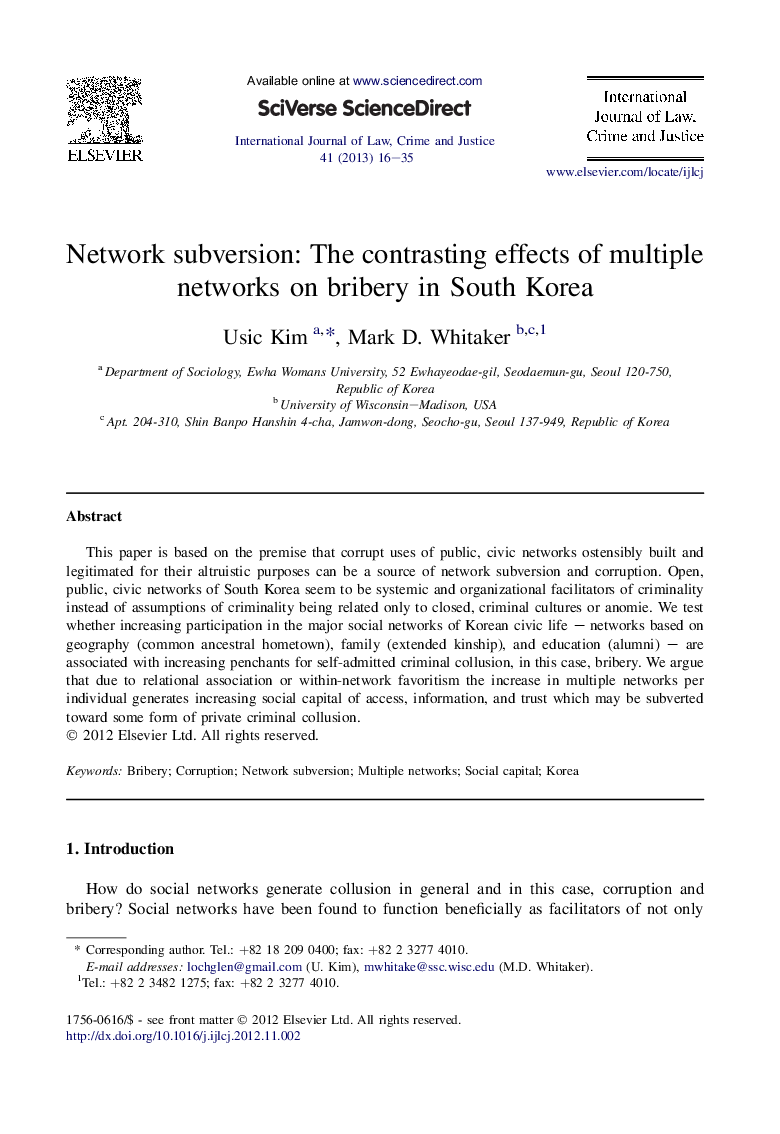| Article ID | Journal | Published Year | Pages | File Type |
|---|---|---|---|---|
| 1097831 | International Journal of Law, Crime and Justice | 2013 | 20 Pages |
This paper is based on the premise that corrupt uses of public, civic networks ostensibly built and legitimated for their altruistic purposes can be a source of network subversion and corruption. Open, public, civic networks of South Korea seem to be systemic and organizational facilitators of criminality instead of assumptions of criminality being related only to closed, criminal cultures or anomie. We test whether increasing participation in the major social networks of Korean civic life – networks based on geography (common ancestral hometown), family (extended kinship), and education (alumni) – are associated with increasing penchants for self-admitted criminal collusion, in this case, bribery. We argue that due to relational association or within-network favoritism the increase in multiple networks per individual generates increasing social capital of access, information, and trust which may be subverted toward some form of private criminal collusion.
